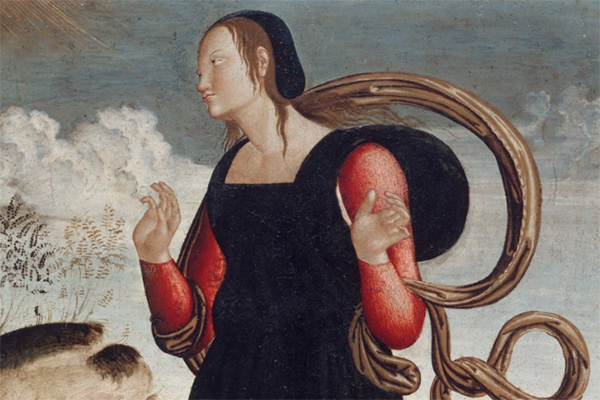
That I see the virtue of hope as central to living as a follower of Christ may have something to do with the process of aging. I know that in recent years hope has seemed to me to be at the heart of the Christian mystery and at our vocation to enter more deeply into our relationship with God.
I agree completely with St. Paul that the greatest virtue is charity but I have come to believe that hope is intimately related to charity. I believe that I should allow the Holy Spirit to strengthen my trust in God’s providential love for me and for those with whom I have close relationships. Fear of the future should give way to trust and hope in God’s love. Anxiety should cease. Relying on hope I should take to heart God’s words: “Be still and know that I am God.”
Reflecting on the virtue of hope, I looked at a book that I read many years ago, Robert Johann’s “Building the Human” (New York: Herder and Herder, 1968, pp. 192). Johann writes the following:
“To approach another with love, therefore, requires a heart filled with hope. The lover comes with a prayer,
‘Let me be with you’ — and can only hope to be heard. He looks to a relationship that is meant to be forever,
but can only hope that it will be so. Without hope, that is a willingness to count on another’s freedom as reliably for him, he would never take the step. Without hope, which embraces the whole of the future, his love could not even begin.” (p. 150)
I have come to believe that the future does not merely happen to us, that all we can do is passively allow the future to happen. There is a power to hope that gives our lives direction. We are tempted to believe that the future is like the weather: it happens to us and there is little that we can do but experience it passively. I think to some extent, perhaps more than we often realize, we create the meaning of our future. What, or whom, we place our hope in makes us who we become.
Johann writes: “The lover knows however, that there is nothing automatic or inevitable about the relationship he seeks. He knows it comes as a gift that need not be bestowed, that is always a suprise. Again, because love is essentially free, the hope connected with it is not based on calculations. … In a sense, he does not base it on anything. He feels it rather as something which he owes, something which has to be given for love to be possible at all. Only if he is willing to rely on another’s goodness and love, only if he hopes in him, therefore, can that person come near and heal his isolation. To refuse to hope is thus to render the other powerless to help us. To refuse to trust another is thus already to betray him.”(p. 150)
Johann’s insights into hope can be especially enlightening when we reflect on them in relation to God. Whatever relationship we have with God is initiated by God. We are invited into a relationship with God through the Holy Spirit.
God has enormous respect for our freedom. Anything good that happens to us as adults involves our freedom. God has freely loved us and freely invited us into an intimate love relationship. That relationship will not happen automatically
Our trust and our hope are essential for God’s love to transform us. While the transformation is mysterious, it is not magical. It involves two freedoms: God’s and ours.
Accompanying our hope and trust in God may be many wishes, for example our wish for perfect health, or for a new car or a new job or whatever. If those wishes are not fulfilled, we should not stop placing our trust and our hope in God. In hoping and trusting, we are not making a deal with God. Our hope and trust are not offered as though we are making a contract with God, something like we will do something for God if God will do something for us. No!
God’s love for us is unconditional. It is a gift that will never be withdrawn. Our hope should be unconditional. We should hope and trust when everything in our life seems to be going the way we wish; we should hope and trust in God when nothing in our lives is going the way we wish.
Our hope and trust should give God infinite credit. We hope and trust because God is God, the Lover Who will never abandon us. In hoping and trusting in God, we may not receive perfect health, or a new car, or a new job. We will receive God.
Father Lauder is a philosophy professor at St. John’s University, Jamaica. He presents two 15-minute talks from his lecture series on the Catholic Novel, every Tuesday at 9 p.m. on NET-TV.
